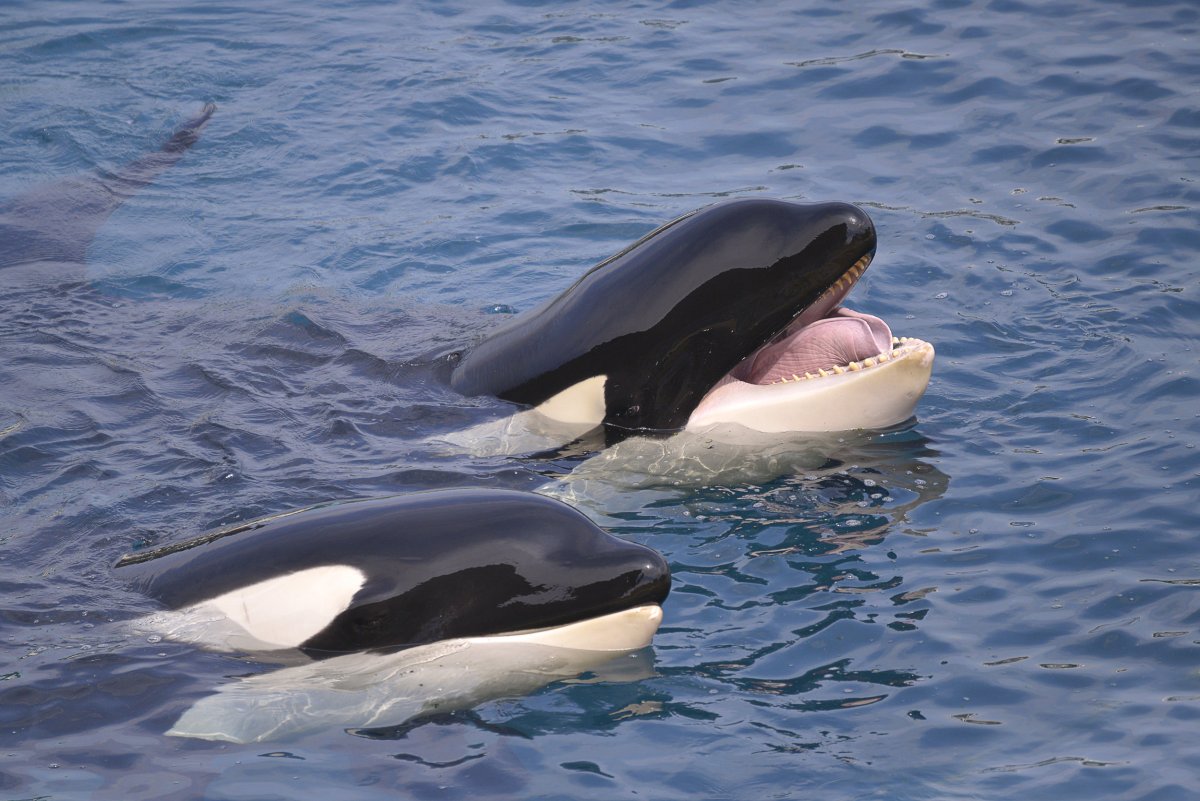Orcas are continuing to attack sailboats off the coast of Spain and Portugal, and scientists might be closer to understanding why.
Since 2020, there have been hundreds of interactions between orcas and boats off the coast of both Spain and Portugal. The encounters have ranged from orcas simply approaching boats to actively interfering with them.
While many encounters have not been life-threatening, some interactions have been severe. In July, orcas sank a sailboat with five people on board off the coast of Sines, after they rammed the boat. Orcas also attacked a family sailboat twice in August and September.
Recent attacks have occurred off the coast of Sines, Portugal—an area that appears to be a hotspot for the attacks.
Norma Russell, who was sailing from Cascais, Portugal to Sines, said on a Facebook post that there had been a "very scary moment" during the voyage on October 5, when an orca measuring 16 to 19 feet surfaced behind the boat.
For 15 minutes, she said the orca bumped the boat 4 to 5 times and "lifted the boat at the back."
"No damage apart from a few scrapes to the rudder and a few more grey hairs. An amazing experience but once is enough," Russell said in the Facebook post. "I kept the rudder centralized and didn't feel any significant impact although with hydraulic steering the wheel does not transmit much if any feedback at the best of times. After approximately 15 minutes the Orca was seen swimming away to the northwest."
The attacks also appear to be happening off the coast of Lagos, Portugal.

A boat that had been sailing five miles off the coast of Lagos was towed in with a damaged rudder on October 8, a Facebook user reported in a post to the group Orca Attack reporting.
The user said "at least one other boat" had been rammed by an orca, but had managed to drop its sails and motor away in reverse.
The Atlantic Orca Working Group—a collective of scientists tracking the interactions—is working to understand what is causing these interactions.
Alfredo López, an orca expert at the Atlantic Orca Working Group, told Newsweek that all attacks have occurred in a particular area.
"Unfortunately everything remains the same, the connections are maintained in a very dispersed area that goes from French Brittany to the Strait of Gibraltar, but numerically they did not increase compared to last year," López said.
While the location is large, it can offer scientists some insight into what could be attracting the orcas' behavior in this area.
Orcas often come to the coast of Portugal during the summer months, to feed on the tuna that live around the Gibraltar Strait. There was a period recently where attacks seemed to decrease—scientists believed this was down to the orcas moving further north.
But the attacks then began again.
López previously said that the attacks do not appear to be aggressive. Orcas are socially complex animals and have frequently been observed adopting strange behaviors. Scientists believe they may approach boats out of curiosity, or as part of a game.
Luke Rendell, a lecturer in biology at the Sea Mammal Research Unit and the Centre for Social Learning and Cognitive Evolution of the University of St. Andrews, Scotland previously told Newsweek that the behavior might be a "cultural fad," and "idiosyncratic behavior that has developed socially in a specific group of whales."
"[It possibly has] its roots in play, and possibly a history of undocumented and less dramatic interactions that has developed into this current problematic behavior," Rendell said.
Uncommon Knowledge
Newsweek is committed to challenging conventional wisdom and finding connections in the search for common ground.
Newsweek is committed to challenging conventional wisdom and finding connections in the search for common ground.
About the writer
Robyn White is a Newsweek Nature Reporter based in London, UK. Her focus is reporting on wildlife, science and the ... Read more





